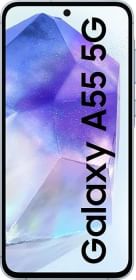Recently launched Copilot AI by Microsoft and the insanely popular ChatGPT from OpenAI, both have found themselves in hot water after one of the biggest publications ‘The New York Times’ filed a lawsuit against the two Generative AI chatbots alleging them of copyright infringement. The Times claims these companies gargled millions of its articles to train their AI models holding them responsible to the tune of billions of dollars in statutory and actual damages.
The Times Sued Microsoft and OpenAI for Copyright Infringement
Earlier on Wednesday, The Times filed a lawsuit against both OpenAI and Microsoft at the Federal District Court in Manhattan. The lawsuit alleges both companies used millions of articles available in The Times to train their large language models (LLMs) i.e. OpenAI’s ChatGPT and Microsoft’s Copilot.
The publication has tagged it as copyright infringement and has mentioned billions of dollars and actual and statutory damages. However, the publication hasn’t mentioned the exact monetary demands at the time of writing this.
The What and How?
You might ask, what the copyright infringement is about and how both OpenAI and Microsoft were alleged to be doing it.
Turns out both companies use millions of articles published in ‘The Times’ to train their AI chatbots. It is how these chatbots can spew responses whenever you ask any question and prompt the chatbots. Turns out these chatbots can gargle large amounts of data and based on the information available, they respond to the user’s query based on the algorithms and parameters designed under the hood.
The New York Times believes this is as infringement of copyrighted and intellectual properties i.e. the millions of articles we mentioned earlier. These chatbots can scan through The Times’ content verbatim, summarize the content and respond to user’s queries often mimicking the expressive styles of the referred or trained data set.
Also Read: Microsoft Release Copilot For Everyone: Here Are Five Things You Can Do With The AI Assistant
Additionally, this puts the business at the news publication in danger as they are left with fewer means to monetize their content. They tagged the defendants as someone who would take a free ride on the content created by the publications, their content creators, and owners.
The Times mentioned they spoke to both Microsoft and OpenAI about their concerns with the use of their data to train chatbots. They even discussed adding guardrails to this process, however, there was no resolution made.
OpenAI says they are in talks with The Times and are ‘moving constructively’ including uncovering newer revenue streams for publications like The New York Times and partners.
It remains to be seen how the story unfolds itself. It could set up a benchmark for both the tech companies and the entire news industry as we move forward.
You can follow Smartprix on Twitter, Facebook, Instagram, and Google News. Visit smartprix.com for the most recent news, reviews, and tech guides.





























